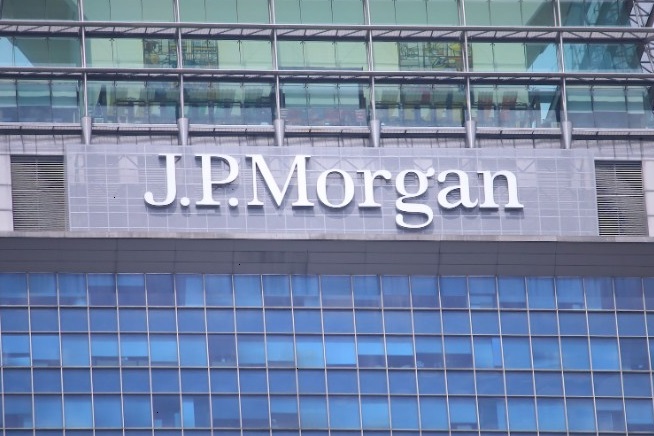One of the studies that were recently conducted, particularly for the initiatives of the company JPMorgan, as far as digital transformation, has shown that for the roadmap of the bank, one of the key technologies is certainly Blockchain.
The details about the study were obtained from a press release that recently, on October 3.
The study has also analyzed the strategies of the company that made to secure the competitive edge of the same, mainly against rival banks, fintech startups, and non-financial firms as well.

This study that was done recently also covers the entire roadmap of the bank, as far as the digital transformation aspect of the same.
In this Paragraph, the blockchain is actually listed as the first, as far as the range of a few bleeding-edge technologies which the bank is pursuing.
However, These technologies also include cloud, big data, robotics, and artificial intelligence, among others.
The study has also considered the various approaches that the bank has recently undertaken, which include establishing incubators and accelerators, disruptive solutions, and others.
The recommendations for some other participants in the market, which to embrace the fintech innovation which has quite a wide range.
In the last week, some reports had come out of the expansion of the blockchain payment of JPMorgan,
which to nearly 75 multinational banks, and this is primarily to fight off the competition that exists outside this banking sector.
According to the reports, the bank has been testing the platform for quite some time now, and it tested the same first in the month of April,
However, with a few partners that include Goldman Sachs, National Bank of Canada, and Pfizer Inc. as well.
JPMorgan Chase, one of the world’s largest banks, has been an outspoken advocate of blockchain technology for several years.
The bank has participated in several blockchain initiatives, including the development of the Onyx platform and the introduction of the JPM Coin.
JPMorgan announced in 2022 that blockchain would play a central role in its digital transformation strategy.
The bank stated that it would invest heavily in blockchain research and development and seek to improve its fundamental banking operations using blockchain technology.
Multiple factors motivate JPMorgan’s interest in blockchain.
First, the bank believes blockchain has the potential to enhance the efficacy and openness of financial transactions.
Second, the bank believes that blockchain technology could reduce financial system deception and risk. Thirdly, the bank believes that blockchain technology could facilitate new avenues for financial innovation.
Not only JPMorgan has an interest in blockchain technology, but other financial institutions do as well.
Goldman Sachs, Bank of America, and Citigroup are among the other institutions that have participated in blockchain initiatives.
The financial sector’s adoption of blockchain technology is still in its infancy.
However, there is a growing belief that blockchain could have a significant impact on the processing and management of financial transactions.
Here are some specific applications of blockchain technology by JPMorgan:
JPMorgan has developed Onyx, a blockchain-based infrastructure, to increase the efficiency of its wholesale payments business. Onyx enables institutions to settle payments in real-time, thereby saving them time and money.
JPM Coin is a digital currency JPMorgan using blockchain technology. JPM Coin for use in transactions between institutional customers, such as banks and businesses.
JPMorgan makes substantial investments in blockchain research and development. The bank is developing new blockchain-based applications to enhance its primary banking operations and create new opportunities for financial innovation.
JPMorgan’s involvement in blockchain technology is indicative of the financial industry’s expanding interest in this technology. Blockchain has the potential to enhance the effectiveness, openness, and safety of financial transactions. We can expect more banks and other financial institutions to implement blockchain as the technology matures.



